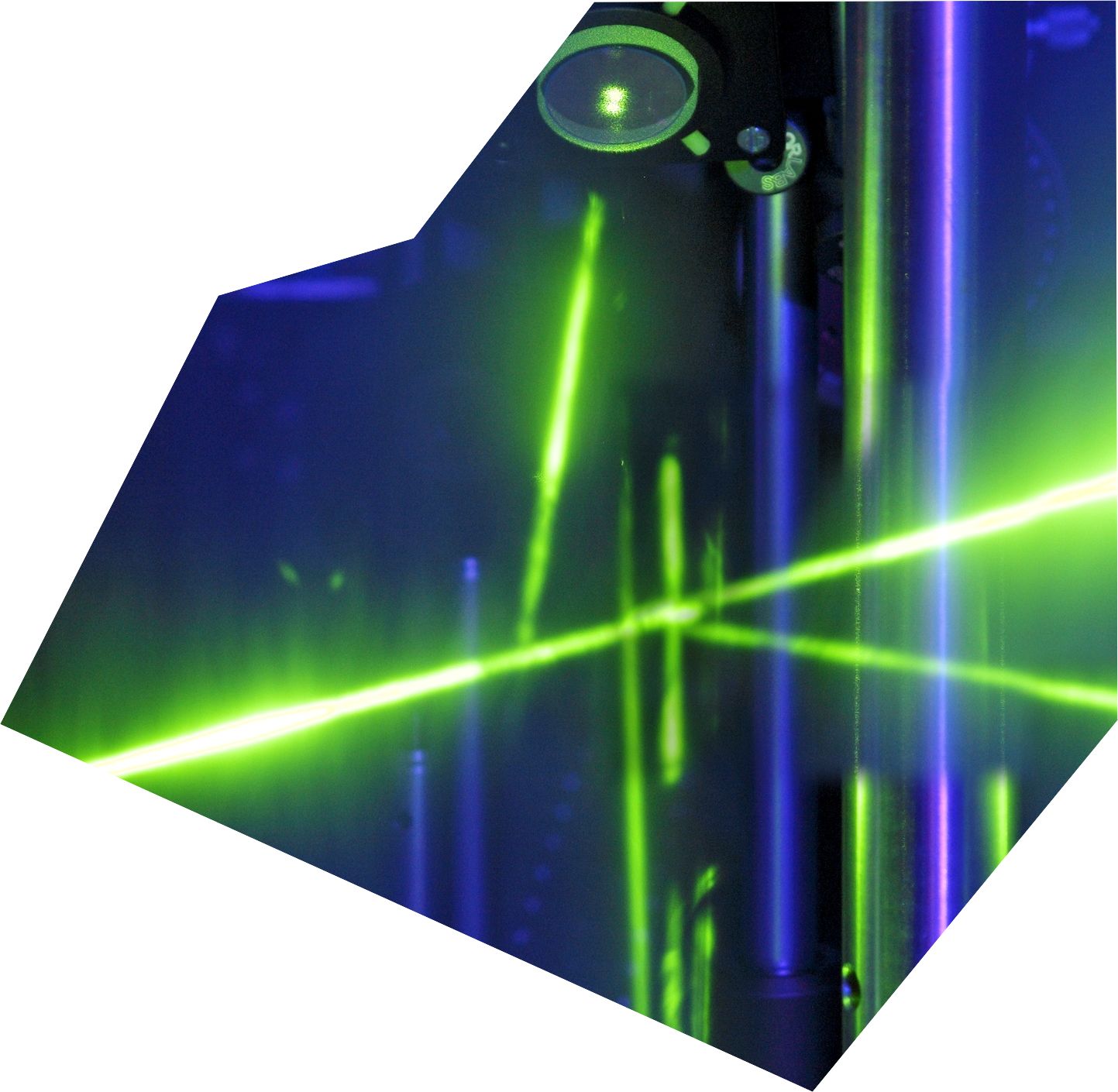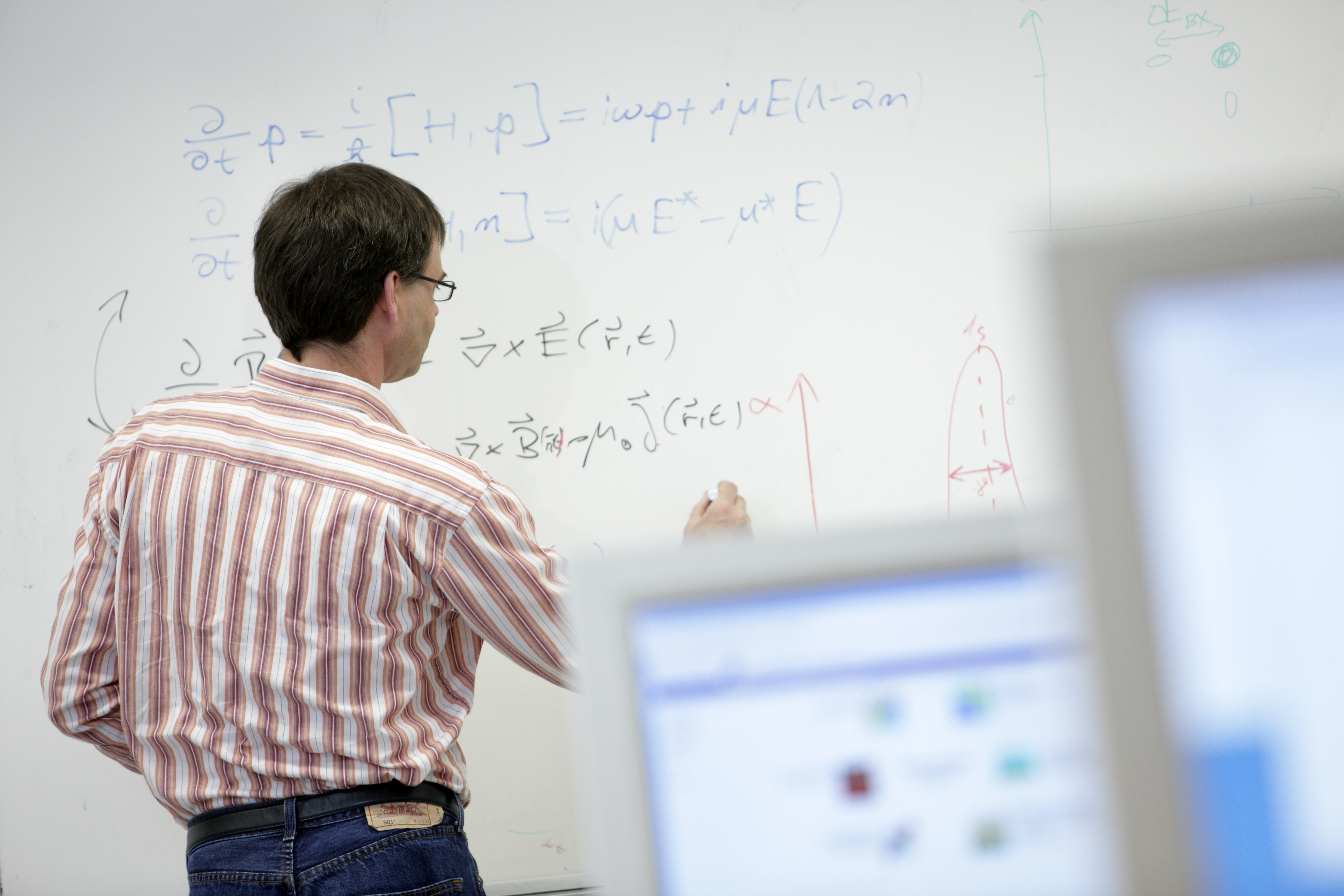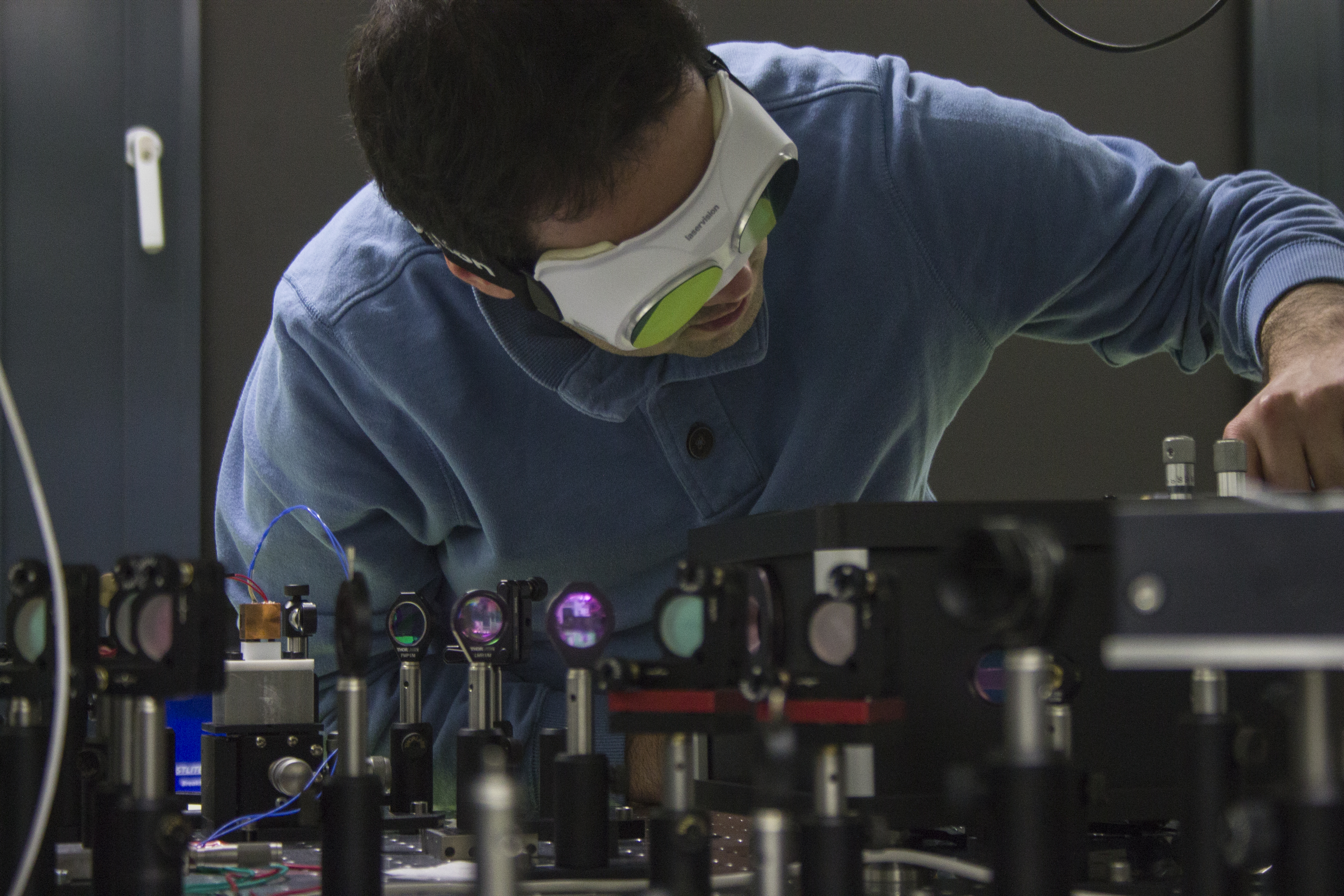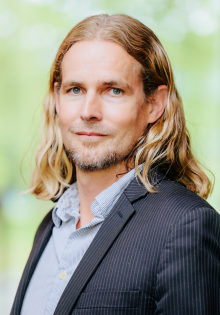MSc Optoelectronics and Photonics
The interplay between optics and electronics is of both fundamental scientific interest and the foundation of a broad range of modern technology. Remarkable progress has been made in recent years combining techniques from areas as diverse as nanophotonics, semiconductor physics and even quantum optics. Learning how to bring fundamental principles of optoelectronic interaction out of the laboratory and engineer them into workable devices is a key skillset to drive this field forward.
Our two-year Masters course in Optoelectronics and Photonics places students squarely at the intersection of modern physics, precision engineering and state-of-the-art technology. Students will develop a broad, technical skillset, as well as rigorous understanding of the underlying concepts. On completion, successful students will be ideally suited to a future academic or industrial career in this exciting and fast-moving field.
We offer:
- A broad range of targeted interdisciplinary courses, taught in English
- Masters projects in internationally active research groups
- Smooth progression towards PhD study in Germany and beyond
- Career perspectives in existing and emerging industries
- A gateway to European academic and industrial networks
The course comprises lecture courses, laboratory practicals and an extended Masters thesis project. Key concepts are covered in core lectures, followed by specialist options in physics and electrical engineering. Laboratory work develops the practical skills required for a successful Masters thesis, which focusses on developing specialist research methods and independent project management. Language courses and professional training complete the curriculum.
Examples of specialist skills acquired:
- Characterising nanostructures
- Developing concepts and devices in quantum information technology
- Designing optoelectronic structures
- Simulating light in complex optical systems
- Training in commercial simulation packages
- Fabricating atomically flat semiconductor structures
- Characterising materials at the atomic scale
Degree: Master of Science (M.Sc.)
Bachelors' Degree in
- Physics (or an equivalent Natural Science or Engineering degree that includes physical and mathematical fundamentals and a quantum theory course)
- Fluency in English (accredited verification is needed)
- for further details see the admission requirements
Being more practical than a purely scientific masters course, yet retaining much of the academic rigour, successful graduates of the programme will be well prepared, and highly sought-after, in the job market. As well as existing technical industrial sectors, such as R&D, process engineering, technical computing and many others, the programme opens up perspectives in emerging sectors such as quantum technology, which is already attracting bright, well-trained graduates for the next generation of tech start-ups.
Graduates who wish to continue their studies after the Masters programme are perfectly placed to do so. Paderborn University is well-established as a centre of optoelectronics and photonics research, and progression to study for a PhD within one of the many exciting and internationally active research groups is extremely smooth.
- Excellent staff-to-student ratio
- Modern laboratories for practical training and research
- Close cooperation with local and international companies
- Many new workplaces for students
- Compact campus
- Family friendly university
- Very good cafes and cafeterias
- Modern student dorms
- City centre is within walking distance
Living in Paderborn:
- Centrally situated in Germany and Europe
- Low cost of living
- Good infrastructure
- Paderborn überzeugt








